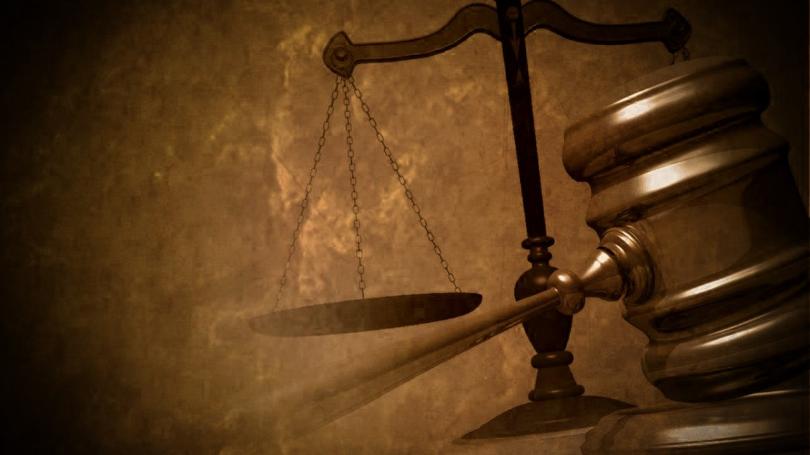Admissibility of ‘Recorded Substance’ without examining ‘Recording Officer’

Rajib Kumar Deb:
‘It shall be the responsibility of the police officer to ensure that the complainant or the witness appear before the court at the time of hearing of the case’ –is one of the cardinal principles of procedural law. Any recalcitrance to this results in not only prosecution failure but also acquittal of the culprits.
But the liberal view of principles germane to the admissibility of evidence and law on presumption may work as guiding role in exercising ‘discretionary power of trial court’ into making the prosecution case more reliable as well.
In our prosecution proving modus operandi, ‘Recorded Substance’ includes FIR, statement and confessional statement, victim statement, medical certificate, investigation report, seizure list, chemical examination, post-mortem, inquest report.
‘Recording Officer’ includes Officer-In-Charge, Magistrate, Medical Officer, Investigation Officer, Chemical Examiner.
‘Recorded Substance’ may link up a unique nature of evidence to the prosecution case and also connect a corroboration between oral and documentary evidence. That is why ‘Recording Officers’ are categorised as ‘Vital Witnesses’.
Nevertheless, it has juristically been estimated that attributable to the multiplication of administrative function, manual correspondence, costly attendance and distance of posting places, training of “Recorded Officer” predominantly discourage the proclivity in producing vital witnesses before the court of law which may surmise a paralysing proving system on the Justice disposal arrangement.
One may have a query as to whether the trial court may admit the “Recorded Substance” as evidence without examining “Recording Officer?
Cardinal principle is that the prosecution must prove its case. The prosecution law contains no explicit provision requiring the compulsory attendance of the “Vital Witnesses” but circumscribes the spaces as to the admissibility of “Recorded Substance”.
Having a careful study of prosecution law, it appears to contain provisions as to medical opinion, chemical report, post-mortem report, statement and confessional statement but is silent about other pieces of “Recorded Substance”.
Rule as to several witnesses in section 134 of EA requires no particular witnesses for the proof of any fact. The hearsay rule in section 60 of EC requires examination of “Recording Officer” when it says that opinion must be proved by the evidence of its holder.
Principle of presumption as to document in section 80 of EA empowers the trial court to consider the confessional statement as a document and presume its genuineness if it relates to the relevant circumstances, duly taken under section 364 of CrPC.
Again principle in section 509 of CrPC empowers the trial court to use deposition of MO if it is taken and attested by the magistrate. Principles in section 509A and 510 of CrPC empower the trial court to use post-mortem and chemical report as evidence without examining MO or CE if he is dead or incapable or beyond the limit. Besides, non-examination of doctor doesn’t arise presumption under section 114g of Evidence Act.
Public documents in section 74 (1) of EA include “Recorded Substance” which may be proved following the procedure prescribed in section 78.
A conversely inherent principle of section 241, 241A and 265 (B) of Crpc and characteristic principle of section 136 of EA imply that since the prosecution has proposed the “Recording Officer” as a witness and the “Recorded Substance” as evidence, the defence should be given opportunity to cross-examine.
Having a careful study of the apex court view, one may find both rigid and liberal standings.
In a case recorded in 42 DLR 186, AD holds that even though Magistrate has recorded confessional statement per law, having regard to the facts and circumstances, it is injurious to rely upon such confessional statement without calling him because the defence has not got the opportunity to cross-examine. In another recorded in 54 DLR 80, HCD holds that in the given circumstances since the veracity of the confessional statement has become questionable, the trial court shouldn’t rely on it.
But a development came out from a decision recorded in 7 BLC 180 where HCD holds that a confessional statement not crossed by the defence cannot be the sole basis of conviction unless there is other corroborative evidence.
In a case recorded in 46 DLR 212, HCD holds that it is not always necessary to call upon the magistrate to test the genuineness of the confessional statement. An important principle came out from a decision recorded in 7 BLC 24 that the trial court cannot make any presumption unless all processes have been exhausted.
In a decision recorded in 48 DLR 305, HCD has declared the examination of the recording magistrate not to be imperative. In some decisions recorded in 53 DLR 278, 55 DLR 137, 59 DLR 17, 29 DLR 271, 51 DLR 244, 49 DLR 573 the apex court holds that confessional statement may be the sole basis for conviction if it is found to be voluntarily and true.
Principle emerges out that if all processes against the “Recording Officer” appear to have been exhausted, if the proposed “Recorded Substance” appears to have been made and thereby submitted under law, true and genuine and above all, it appears to have been corroborated with other evidence as thereby adduced, his attendance appears to be unreasonably delayed and costly, it will not be wise for the trial court to wait for him and should go for to test admissibility.
The question should be settled by the trial court whether it will exercise its discretionary power in admitting “Recorded Substance” without examining “Recording Officer”.
The writer is Rajib Kumar Deb, Senior Judicial Magistrate, Cox’sbazar

